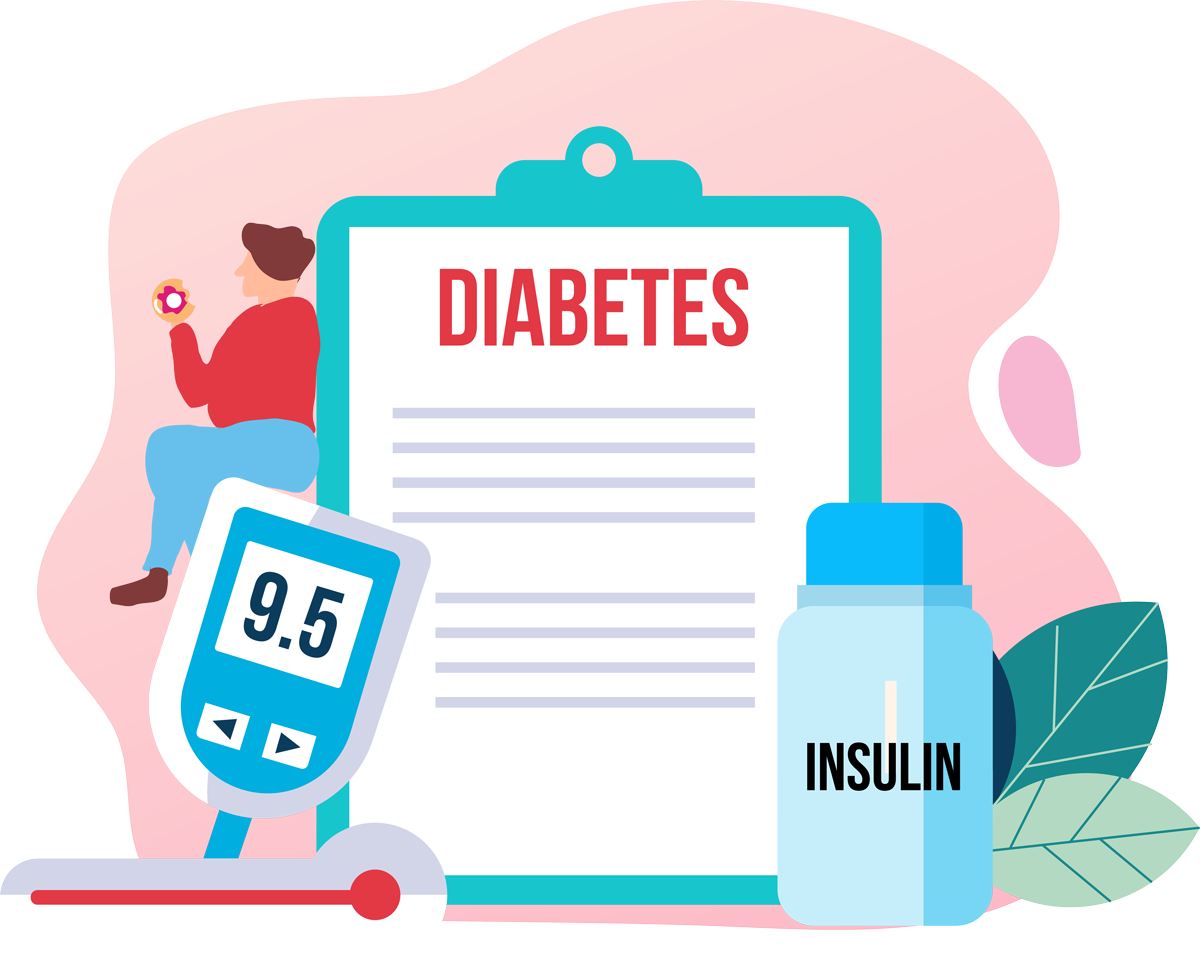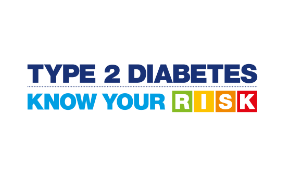Type 1 Diabetes
What is type 1 diabetes?
Type 1 diabetes causes the sugar (glucose) in your blood to become too high. This happens when your body cannot produce enough insulin to control your blood glucose levels. People with type 1 diabetes require the medication insulin to be taken daily to help keep their glucose levels under control.
What are the symptoms of type 1 diabetes?
Diabetes can be diagnosed via a urine sample and blood test usually carried out at your GP practice or local health centre. If you have any of the following symptoms, please contact your GP;
- Feeling very thirsty
- Peeing more than usual, particularly at night
- Feeling very tired
- Losing weight without trying
- Thrush that keeps coming back
- Blurred vision
- Cuts and grazes that are not healing
- Fruity-smelling breath
Managing type 1 diabetes
If you have been diagnosed with diabetes, it can be overwhelming. Click here to learn more about your diagnosis.
Type 1 diabetes – Newly diagnosed: things to help - NHS (www.nhs.uk)
Type 2 Diabetes
What is type 2 diabetes?
Type 2 diabetes, is blood sugar (glucose) levels being too high much like type 1 diabetes. However type 2 diabetes can be linked to lifestyle including excess weight, lack of exercise or if there is a family history of type 2 diabetes.
What are the symptoms of type 2 diabetes?
Diabetes can be diagnosed via urine sample and blood test usually carried out at your GP practice or local health centre. If you have any of the following symptoms, please contact your GP;
- Feeling very thirsty
- Peeing more than usual, particularly at night
- Feeling very tired
- Losing weight without trying
- Thrush that keeps coming back
- Blurred vision
- Cuts and grazes that are not healing
- Fruity-smelling breath
you are more likely to develop type 2 diabetes if:
- Are over 40 years of age (or 25 in south Asian people)
- Have a close relative with diabetes
- Have excess weight or are inactive
- From Asian, African-Caribbean or black-Caribbean origin
Managing type 2 diabetes
Many people with type 2 diabetes will require medication to help manage their condition, this will help to keep blood sugar levels within a healthy range. Medications will be recommended by your GP or practice nurse and will be regularly monitored and adjusted as required. Having a healthy diet and daily exercise will help to keep your diabetes under control. To learn more about simple lifestyle changes click here.
What services are available in Birmingham & Solihull if you have or are at risk of developing Diabetes?
National Diabetes Prevention Programme (NDPP)
This programme is a joint commitment from NHS England, Public Health England and Diabetes UK to identify and provide support for people at high risk of developing Type 2 diabetes. It aims to delay or prevent the onset of Type 2 Diabetes by supporting people to achieve a healthy weight, be physically active and adopt a healthy diet. NHS Birmingham and Solihull ICB continues to work with the National Diabetes Prevention Programme Team National Programme Team since 2015 to support its implementation and roll out across the region.
Who is the programme for?
The Healthier You: NHS Diabetes Prevention Programme is designed for people who are at risk of developing Type 2 diabetes. Some of the known risk factors can’t be changed, but there are others you have control of every day and you can affect your level of risk by the choices you make. The risk of Type 2 diabetes can be reduced significantly by reducing your weight, increasing the amount of physical activity that you do and improving your diet. Your local Healthier You: NHS DPP service can support you in taking action in all these areas. If you are not sure whether or not you are at risk, you can use this Risk Assessment tool to find out. If the results indicate that you are at high risk of developing diabetes, ask your GP for a blood test to check your status and refer you to the programme.
How can I join the programme?
You can access the Healthier You: NHS Diabetes Prevention Programme in the following ways:
- Your GP or nurse may have told you that you are at a high risk of developing Type 2 diabetes – ask them to refer you to your local Healthier You service
- You may have discovered in your NHS health check that you are at high risk of developing Type 2 diabetes – ask the health check professional to refer you to your local Healthier You service
- You may have had your risk assessed at a local event or by using an online assessment tool. If you think you are at a high risk you can ask your practice nurse to arrange the necessary blood tests and if the risk is confirmed, you can ask for a referral to your local Healthier You service
For more information and resources can be accessed below to find out more about this programme: Start your journey to a Healthier You
Type 2 Diabetes Path to Remission Programme (T2DR)
The formerly known Low Calorie Diet Programme (LCD) commissioned by NHS England, has recently changed its name to Type 2 Diabetes Path to Remission Programme (T2DR)
A FREE new one year programme to support you to:
- Lose weight
- Reduce your diabetes medications
- Feel fitter, healthier and happier
- Potentially put your diabetes into remission.
The NHS Type 2 Diabetes Path to Remission has three-phases over one year – all at no cost to you:
- You’ll follow a low calorie diet for 12 weeks – your choice of soups, shakes and bars totalling 8-900 calories per day
- You’ll gradually replace these products with healthy, tasty meals over six weeks
- You’ll receive ongoing support for the last 8 months to help you maintain your weight loss. Our trained Coaches will support you with easy-to-use tools and techniques to lose weight and keep it off by looking at topics such as nutrition, physical activity and lifestyle change.
Who is eligible for the programme?
If you are any of the following you may be eligible:
- Registered with a GP practice in Birmingham and Solihull
- Aged 18-65
- Diagnosed with Type 2 diabetes within the last 6 years
- Above a healthy weight
- Able to commit to a 12-month programme
- Willing to be coached individually either in in-person appointments or using an app
- Comfortable with just soups and shakes for the first 12 weeks.
You also need to meet various other eligibility criteria, including: Not on insulin, not pregnant / planning pregnancy in the next 12 months, and not had bariatric surgery. If you’re eligible and interested ask your GP practice for more details.
Click here to read about participants experiences of the programme
What next?
The NHS has funded 500 places on the NHS Type 2 Diabetes Path to Remission Programme across Birmingham and Solihull. If you’re interested in finding out more you can visit:
Birmingham & Solihull: NHS Type 2 Diabetes Path to Remission - Momenta Newcastle
Type 2 diabetes remission
This means your blood sugar levels are no longer in the range for diabetes and you don’t need to take any diabetes medications! Some people call this reversing but we prefer the term remission because your diabetes can come back so you will still need regular reviews. Research tells us that you’re more likely to achieve remission if you:
- Have been recently diagnosed
- Take fewer or no diabetes medications
- Lose more weight and keep it off
Although not everyone can achieve remission there are many other health benefits to losing weight and adopting an active and healthy lifestyle.
My Diabetes Healthcare Programme (Type 2 Structured Education)
My Diabetes Healthcare Programme is a type 2 diabetes structured education and behaviour change programme that takes place over 12 weeks. It’s a completely free programme that puts you in control of your health with personalised support to help you better manage your diabetes, achieve your health goals and stay motivated. As a 100% remote service, you can take part in the programme from the comfort of your own home at a time that suits you however you can request face to face/one to one intervention based on your personal circumstances.
Who is eligible for the programme? If you are any of the following you may be eligible:
- Aged 18 years or over Diagnosed with Type2
- Diabetes in the last 12 months or has never previously accessed a diabetes education programme
- Registered with a GP practice in Birmingham and Solihull
- Not pregnant
If you are interested in this programme and wish to learn more, or self refer please click here
Further Information
The programme is tailored to the circumstances and cultural needs of its service users and is sensitive to different traditions including cultural, religious, language or literacy needs as well as those with learning difficulties or mental health illness and those with sight impairment/hearing loss. The content of the sessions aims to empower you to take a leading role in instituting and maintaining long-term behaviour change to better manage your diabetes.





